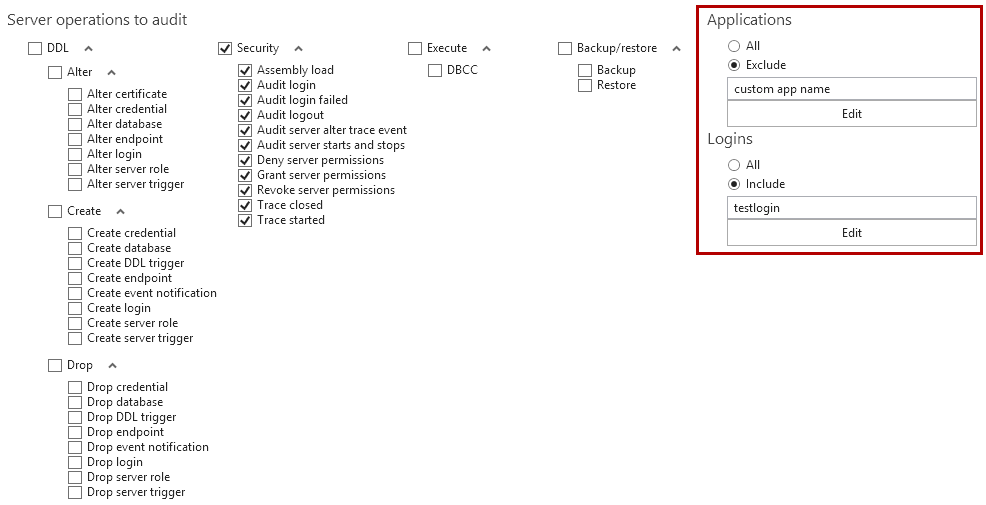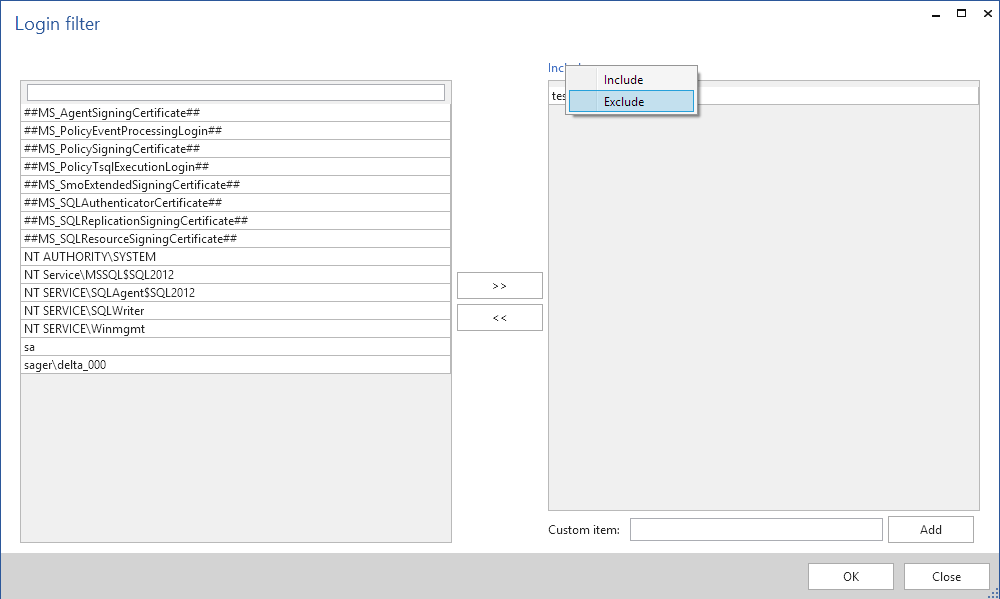The new release of ApexSQL Audit (formerly ApexSQL Comply) is out. ApexSQL Audit is a SQL Server auditing tool with a wide range of possibilities for auditing access, changes, and security on SQL Server instances, databases, and objects. It audits queries, DDL and DML operations, security events (authentication changes, permissions changes, and attempted logins), events on stored procedures and functions. ApexSQL Audit saves captured information in a centralized auditing repository and provides comprehensive reports. Besides the name change, in ApexSQL Audit 2014 R5, we introduced new features, and improved usability and quality
Application and Login filter
To allow even more granular filtering of data that will be collected, we have introduced two new filters. By using these filters, all operations executed by specified applications and/or logins will be excluded from auditing.
After selecting the include/exclude radio button and pressing on the Edit, from desired applications and/or logins can be easily included or excluded from the auditing process
The Login filter offers additional flexibility to include specific logins that will be audited exclusively, or to exclude specific logins, the so called trusted logins. A provision for entering the Application/Login name manually is also available in the Custom item text box
|
Quick tip: An application name can be set in a connection string, so a potential attacker could easily simulate another application. In this regard, the login filter is sometimes a much more reliable way to exclude a known and trusted application |
Command Line Interface commands
With introducing Command Line Interface commands we have enabled automatization for some of the most common/important tasks:
- Start/stop auditing instances
- Archive the central repository database
- Check the central repository database integrity
The following CLI commands are available in its full syntax:
– ApexSQL.Comply.Cli.exe StartInstance –InstanceName=”<ServerName>\<InstanceName>”
– ApexSQL.Comply.Cli.exe StopInstance –InstanceName=”<ServerName>\<InstanceName>”
– ApexSQL.Comply.Cli.exe ArchiveCrd
– ApexSQL.Comply.Cli.exe VerifyCrdIntegrity
December 23, 2014












